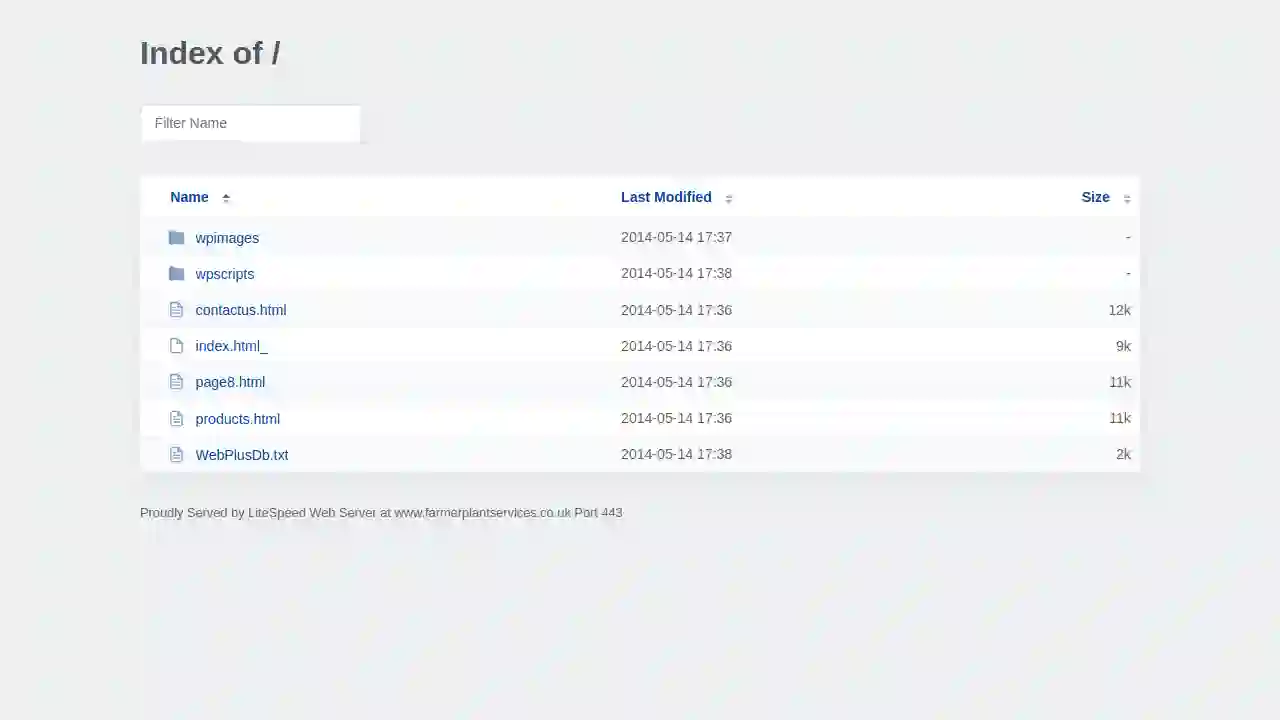Excavation Contractors Wellington
Top 10 Trenching Services in Wellington
Receive 3 FREE Excavation Services quotes for your project today! Compare profiles, reviews, accreditations, portfolio, etc... and choose the best offer.
- Ro
Rosehill Contractors Ltd
511 reviewsTelford, GB- Services
- Why Us?
Get Quote - Te
Telford Drainage Solutions
4.960 reviewsTelford, GB- Services
- Why Us?
Get Quote - Bu
Butler Groundworks
4.114 reviewsTelford, GB- Services
- Why Us?
Get Quote - Te
Telford & Wrekin Council
2.214 reviewsTelford, GB- Services
- Why Us?
Get Quote - Un
Unique Drives and Landscaping Ltd - Driveways Shrewsbury
45 reviewsTelford, GB- Services
- Why Us?
Get Quote 
Farmer Plant Services
1Telford, GBFarmer Plant Services: Your Trusted Partner for Environmental Projects Farmer Plant Services is a company with a wealth of experience in delivering a wide range of environmental projects. We are dedicated to providing high-quality services that meet the specific needs of our clients. Whether you require the construction of a wildlife pool, the installation of a slate bridge, or the creation of woodland tracks, our team has the expertise and commitment to deliver exceptional results. We understand the importance of working in harmony with the environment. Our team is highly skilled in navigating challenging terrain, including rough terrain and sloping ground. We are committed to minimizing our environmental impact and ensuring the sustainability of our projects. Explore our website to learn more about our services and view examples of our past projects. Contact us today to discuss your environmental project needs and let us help you bring your vision to life.
- Services
- Why Us?
- Gallery
Get Quote- Pi
Pinnacle Projects Group LTD
1Telford, GB- Services
- Why Us?
Get Quote - Sh
Shropshire driveways and patios ltd
1Telford, GB- Services
- Why Us?
Get Quote - Wr
Wrekin Drain Services Ltd
4.828 reviewsTelford, GB- Services
- Why Us?
Get Quote 
One Source Construction Services
54 reviews17 Foresters Close, Horsehay, Telford, Shropshire, TF4 3BW, GBAbout Us One Source construction Services are based in Telford, We cover works within the Midlands area. Our projects include both new construction, repairs/restorations across all areas of the industry. Occupied and fully operational job sites are never a problem. Also, we can plan, manage, and build multi-phase jobs. At One Source Construction Services we aim to be a one stop shop where we take all the stress of organising your project so you don`t have to. Working Together We offer an end-to-end client experience that includes; seamless communication, budgeting, staffing, on-site organisation, and solid, quality handy-work every time. Why Choose Us? We carry out all aspects of construction works projects, big or small. Call us today and bring our project management skills and extensive construction experience to your next project.
- Services
- Why Us?
- Gallery
Get Quote
Over 11,537+ Excavation Businesses on our platform
Our excavation experts operate in Wellington and surrounding areas!
ExcavationHQ has curated and vetted Top Excavation Pros arround Wellington. Find a top & trustworthy contractor today.
Frequently Asked Questions About Excavation Contractors
- Clearly Define the Scope: Outline the project's goals, including the excavation area, depth, grade, and intended use.
- Obtain Necessary Permits: Research and acquire any required permits from your local authorities.
- Mark Utility Lines: Contact your utility companies to locate and mark underground utilities to prevent damage.
- Communicate with Neighbors: Inform your neighbors about the project's timeline and potential noise or disruptions.
- Prepare the Site: Clear any obstacles, such as vegetation, furniture, or structures, from the excavation area.
- Discuss Safety Protocols: Review safety procedures with the contractor to ensure a safe work environment.
- Experience: Choose contractors with a proven track record and years of experience in excavation projects similar to yours.
- Licensing and Insurance: Verify that they are properly licensed to operate in your area and carry adequate insurance to protect you from liability in case of accidents or damage.
- Equipment and Resources: Ensure they have the necessary equipment and resources to handle your project efficiently and safely.
- Positive Reviews and References: Check online reviews and testimonials from previous customers. Request references and contact them to inquire about their experience with the contractor.
- Professionalism: Opt for a company that communicates clearly, provides detailed and transparent estimates, and has a responsive and courteous team.
- Clear the Area: Remove any obstacles, including vehicles, outdoor furniture, landscaping features, or structures, from the excavation zone and surrounding area.
- Mark Existing Features: Identify and mark underground utilities, septic tanks, sprinkler systems, or other buried elements you want to protect.
- Protect Landscaping: Use tarps or fencing to shield trees, shrubs, gardens, or other landscaping elements from damage.
- Provide Access: Ensure the excavation contractor has clear access to the work area, including gates wide enough for equipment.
- Discuss Logistics: Coordinate with the contractor regarding parking arrangements, material delivery, and any special instructions or concerns you might have.
- Hauling to Designated Disposal Sites: Transporting excavated material to approved landfills or recycling centers.
- Recycling or Reuse: If suitable, some excavated soil might be recycled for other projects or reused on-site for landscaping or backfilling.
- Complying with Regulations: Adhering to local and environmental regulations for soil disposal to prevent contamination or illegal dumping.
What should I do before excavation starts?
How do I find a good excavation contractor?
How do I prepare my property for excavation?
How do you handle soil disposal after excavation?
What should I do before excavation starts?
- Clearly Define the Scope: Outline the project's goals, including the excavation area, depth, grade, and intended use.
- Obtain Necessary Permits: Research and acquire any required permits from your local authorities.
- Mark Utility Lines: Contact your utility companies to locate and mark underground utilities to prevent damage.
- Communicate with Neighbors: Inform your neighbors about the project's timeline and potential noise or disruptions.
- Prepare the Site: Clear any obstacles, such as vegetation, furniture, or structures, from the excavation area.
- Discuss Safety Protocols: Review safety procedures with the contractor to ensure a safe work environment.
How do I find a good excavation contractor?
- Experience: Choose contractors with a proven track record and years of experience in excavation projects similar to yours.
- Licensing and Insurance: Verify that they are properly licensed to operate in your area and carry adequate insurance to protect you from liability in case of accidents or damage.
- Equipment and Resources: Ensure they have the necessary equipment and resources to handle your project efficiently and safely.
- Positive Reviews and References: Check online reviews and testimonials from previous customers. Request references and contact them to inquire about their experience with the contractor.
- Professionalism: Opt for a company that communicates clearly, provides detailed and transparent estimates, and has a responsive and courteous team.
How do I prepare my property for excavation?
- Clear the Area: Remove any obstacles, including vehicles, outdoor furniture, landscaping features, or structures, from the excavation zone and surrounding area.
- Mark Existing Features: Identify and mark underground utilities, septic tanks, sprinkler systems, or other buried elements you want to protect.
- Protect Landscaping: Use tarps or fencing to shield trees, shrubs, gardens, or other landscaping elements from damage.
- Provide Access: Ensure the excavation contractor has clear access to the work area, including gates wide enough for equipment.
- Discuss Logistics: Coordinate with the contractor regarding parking arrangements, material delivery, and any special instructions or concerns you might have.
How do you handle soil disposal after excavation?
- Hauling to Designated Disposal Sites: Transporting excavated material to approved landfills or recycling centers.
- Recycling or Reuse: If suitable, some excavated soil might be recycled for other projects or reused on-site for landscaping or backfilling.
- Complying with Regulations: Adhering to local and environmental regulations for soil disposal to prevent contamination or illegal dumping.